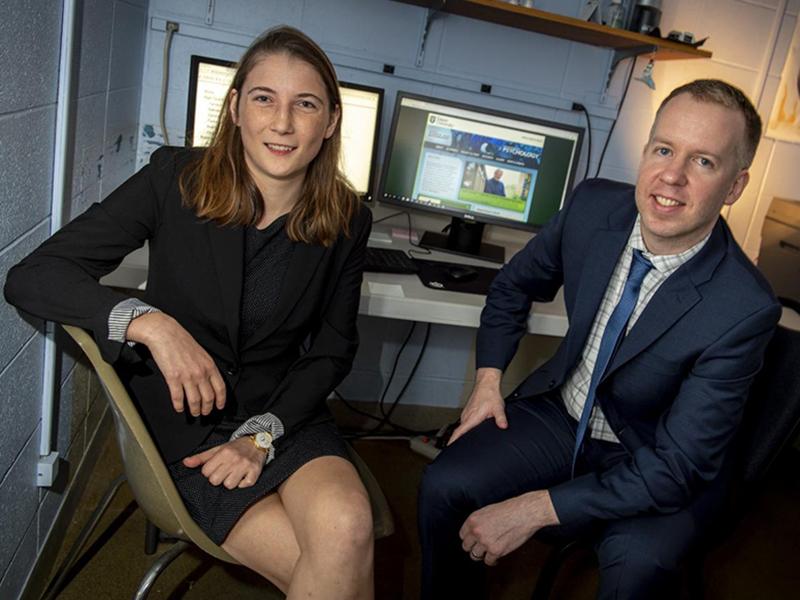American Cancer Society grant to help metastatic cancer patients understand and access palliative care
The American Cancer Society has funded over 100 research grants at Tulane over the past 70 years. Their latest — a four-year, $792,000 award to Michael Hoerger, PhD, MSCR, assistant professor of psychology, psychiatry and oncology — is the largest to the university in the past decade and third largest of all time. It is meant to help metastatic cancer patients better understand and access palliative care.
Palliative care involves a multidisciplinary team that aims to improve quality of life for seriously ill patients and their families. Dr. Hoerger’s research shows that palliative care reduces the emotional and physical burden of cancer, but few patients have heard of it or how it can help, and therefore most never seek it out. And some even fear it.
Through previous research — supported in part by pilot awards from the Louisiana Clinical and Translational Science Center, the Louisiana Cancer Research Center, and the Louisiana Board of Regents — Hoerger's team found that an educational webpage greatly improved attitudes toward palliative care. Then — through the use of talented voice actors and principles of psychology and marketing — they adapted that intervention into a video suitable for viewing on a tablet in clinical settings. The video was developed with input from patients, caregivers and oncologists and provides local information on palliative care, is sensitive to the emotional context, and is tailored to the patient’s levels of education and health literacy. In pre- and post-clinical pilot studies on the video, the team found preliminary evidence of its efficacy in improving palliative care understanding and attitudes.
This ACS award will expand upon these preliminary findings by funding a randomized clinical trial to begin this fall. The trial will enroll 172 racially and socioeconomically diverse metastatic cancer patients in the New Orleans area. Control participants will receive usual care and additional healthcare-related brochures. Intervention participants will receive usual care plus the video. Family caregivers can join if desired.
"We will track patient-reported outcomes and palliative care utilization for six months," said Dr. Hoerger. "If effective, we plan to conduct a follow-up study rolling out the intervention broadly to improve palliative care utilization nationwide. Our hope is that this grant will revolutionize serious illness care by shifting people’s mindsets from fearing palliative care to embracing it.”
As a clinical health psychologist, Dr. Hoerger leads the health psychology doctoral concentration in the Department of Psychology. He says this project would be impossible without extraordinary multidisciplinary collaborators, including Sonia Malhotra, MD, MS; John Lefante, PhD; Oliver Sartor, MD; Laura Perry, MS, and many talented undergraduates.
As the Director of Palliative Medicine & Supportive Care at University Medical Center, Dr. Malhotra notes, “The work that Dr. Hoerger is focusing on is vitally important to ensure patients with metastatic cancer have access to palliative medicine, which focuses on quality-of-life challenges, including symptom management, communication and emotional support.”

